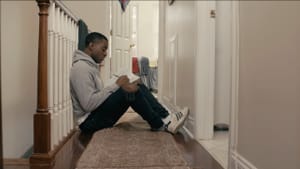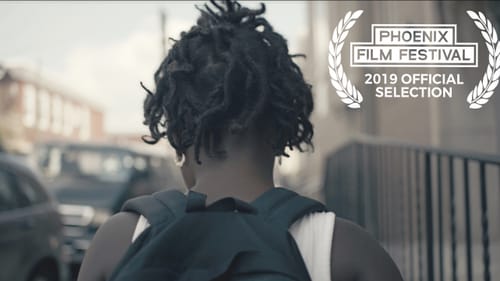Stay in the Loop
BSR publishes on a weekly schedule, with an email newsletter every Wednesday and Thursday morning. There’s no paywall, and subscribing is always free.
The story only you can tell
Philly filmmaker Page Peter Wilson on ‘Trio’ and inclusion in the film industry

When the short film Trio premiered at the Phoenix Film Festival in April, it was a tremendous personal achievement—I co-wrote, produced, and appeared in the film. But beyond my own involvement as a Philly filmmaker, my biggest takeaway was how a film centered around a deaf person of color resonated with judges and festival programmers.
At least a small part of that is a consequence of industrywide attention to the way marginalized identities have been portrayed in film and television—if they've appeared at all.
Phoenix Film Festival (one of the "25 Coolest Film Festivals in the World," according to Moviemaker magazine) is leading the charge in respect to inclusivity, making an intentional effort to feature diverse voices from the world of independent filmmaking.
Seeing the possibilities
With a multitude of options available to us at the Phoenix festival, Trio’s director, Kevin Giles (former recipient of the Director’s Guild of America Student Award in the African American category) and I made an intentional effort to support diverse filmmakers and their films. We checked out the Latinx American-directed film category, the Native American-directed film category, and the African American-directed films, which included Trio. The screenings culminated in thought-provoking conversation at a packed diversity panel discussion. Giles shared the importance of seeing people who look like you, onscreen and behind the camera.
“As a marginalized individual, simply seeing someone like you in a place, on a certain level or in a group that you want to be a part of, it helps you believe that you can be there too, and that you belong there,” he said. “That’s the power of representation. It allows you to expand your perceived possibilities of what you could be. It serves as validation of an experience and a perspective.”
Representation at home
Giles echoes what I heard repeatedly in conversations with other filmmakers during my time in Phoenix. Directors, screenwriters, and actors from diverse backgrounds could recall a person, a movie, or a moment that helped them realize that they wanted to make movies too.
Representation has always been an issue, but in the last few years it’s been propelled into the local, national, and global spotlight. In Philadelphia, numerous organizations are offering support to filmmakers from diverse backgrounds, including the Greater Philadelphia Film Office’s Multicultural Affairs Initiative, which provides resources to filmmakers and crew who are of color, female, part of the LGBTQ community, and/or disabled.
This initiative and others like it are what allow all kinds of people (like 12-year-old me, a kid from Norristown, Pennsylvania) to see characters that look like them or who share their identity, in a movie theater or on a television screen. We need more diverse voices and storytellers. We need popular media to reflect the multifaceted people in our multicultural world. The two things go hand in hand.

A realistic range
When we were working on Trio’s concept, we always knew that it would follow a deaf person of color. We also instantly knew we had a responsibility to create a layered and dynamic character. Representation doesn’t end when a character appears in a film. Yes, he’s Black. Sure, he’s deaf. But those don't define him. We wanted the audience to be able to answer “yes” to the following questions: Do I know who he is as a person? And does he experience a realistic range of emotions?
It was a challenge at times. It’s a short film, with a runtime under 10 minutes. There is very little dialogue throughout the film. We had to get creative, and our cinematographer, Anthony Marotta, along with Giles, did an amazing job engaging and informing the audience through visual storytelling.
The story only you can tell
As a filmmaker, the best advice I've ever received was: “Tell a story that only you can tell.” Essentially, use your own life experiences to find your own unique voice. I think that’s an important lesson for all filmmakers, especially now when unique voices are in high demand. Agents, executives, and festival programmers are looking for the next Barry Jenkins or Mindy Kaling.
Film festivals across the nation give a platform to specific groups of underrepresented individuals. Philly’s Blackstar Film Festival (running this year August 1 through 4), American Black Film Festival, and Pan African Film Festival highlight filmmakers from the Black diaspora. Broad Humor and LA Femme Film Festival offer programs full of films with a distinct female voice. Outfest and the San Francisco International LGBTQ Film Festival showcase films from the LGBTQ community. Superfest International Disability Film Festival and the Los Angeles Disability Film Festival are two festivals that strongly encourage people with disabilities to submit their films.
My moment
Let’s continue to encourage unique voices to tell their unique stories, to write stories that reflect the world around us, and to influence the next generation of directors, screenwriters, and actors who can recall that person, movie, or moment that inspired them.
I remember mine, as a kid: the life-altering moment when I realized that Spike Lee and Robert Townsend were directing and acting in their own movies. They weren’t just the faces in front of the camera; they were also the creative minds behind the camera. It made me think, “Why can't I do that?” Well, I'm doing it, because they let me know that I could.
Sign up for our newsletter
All of the week's new articles, all in one place. Sign up for the free weekly BSR newsletters, and don't miss a conversation.

 Page Peter Wilson
Page Peter Wilson